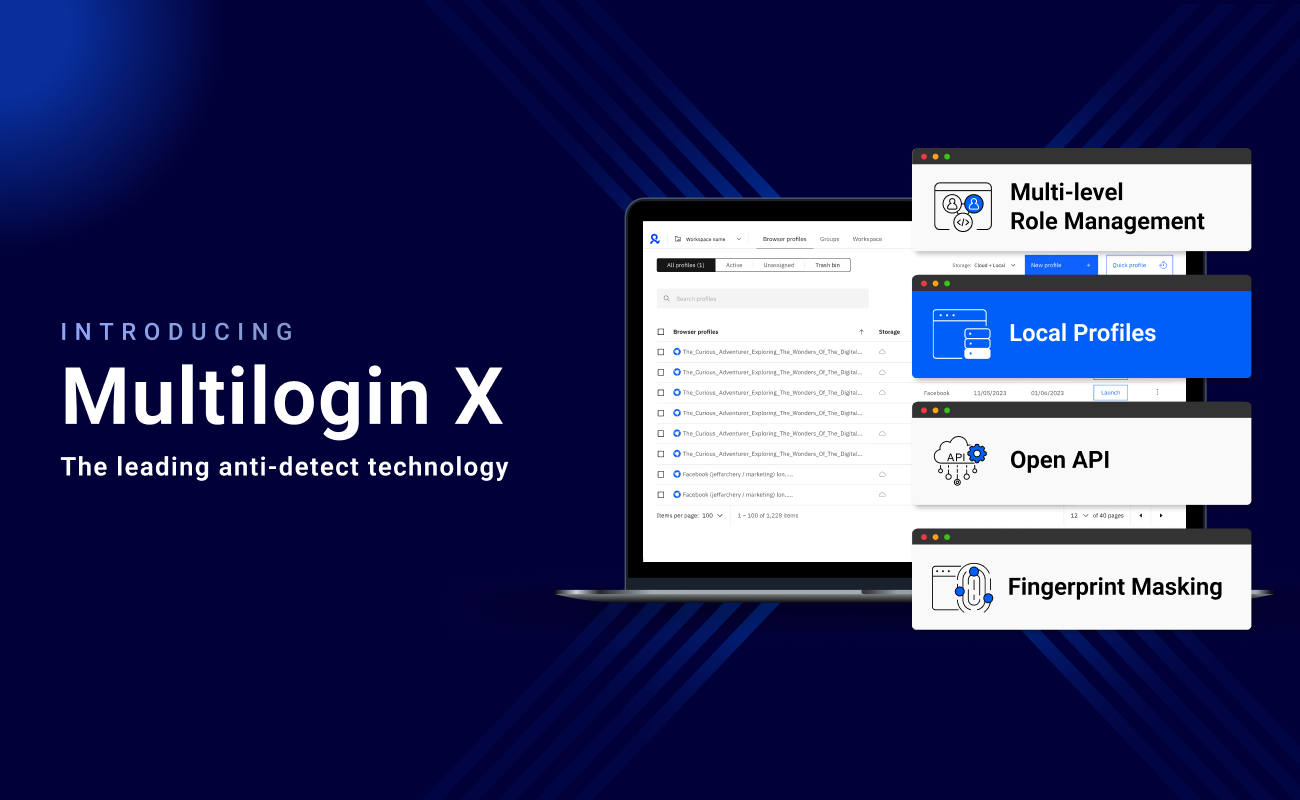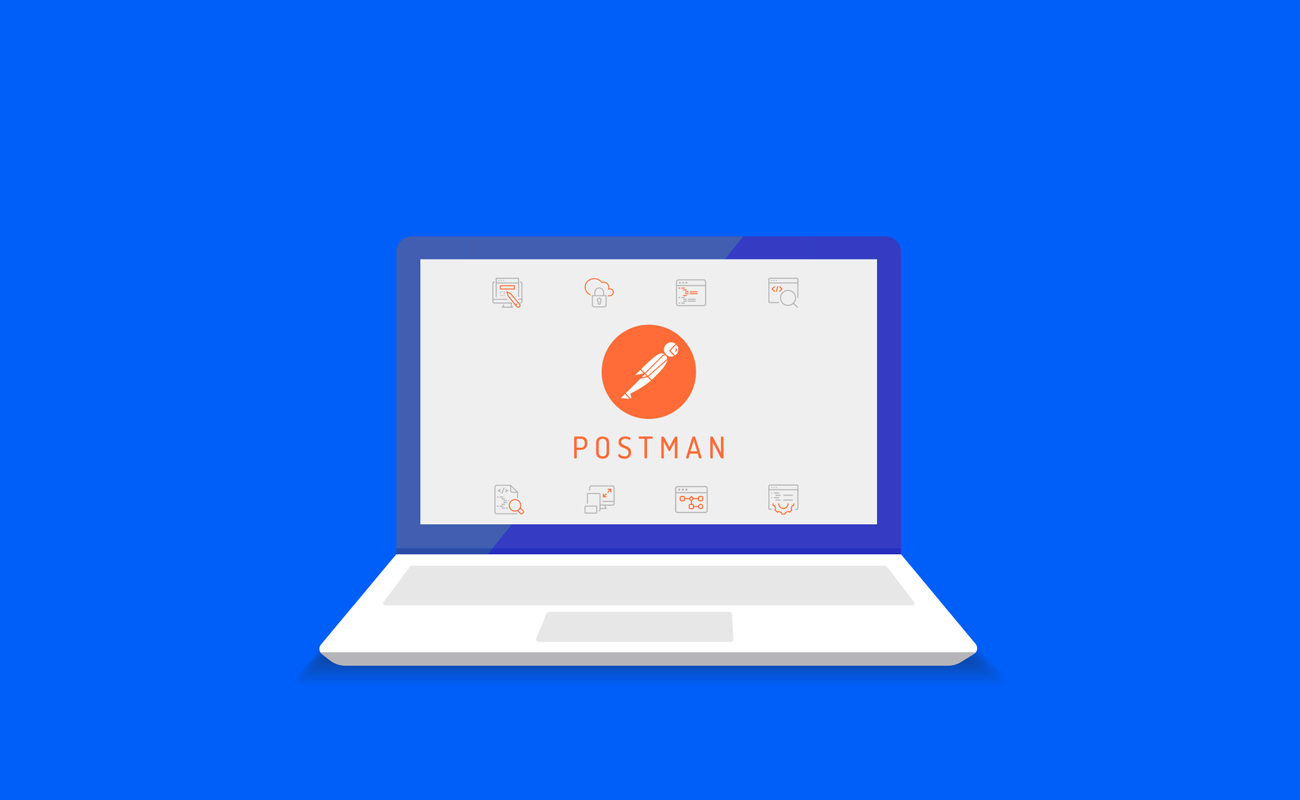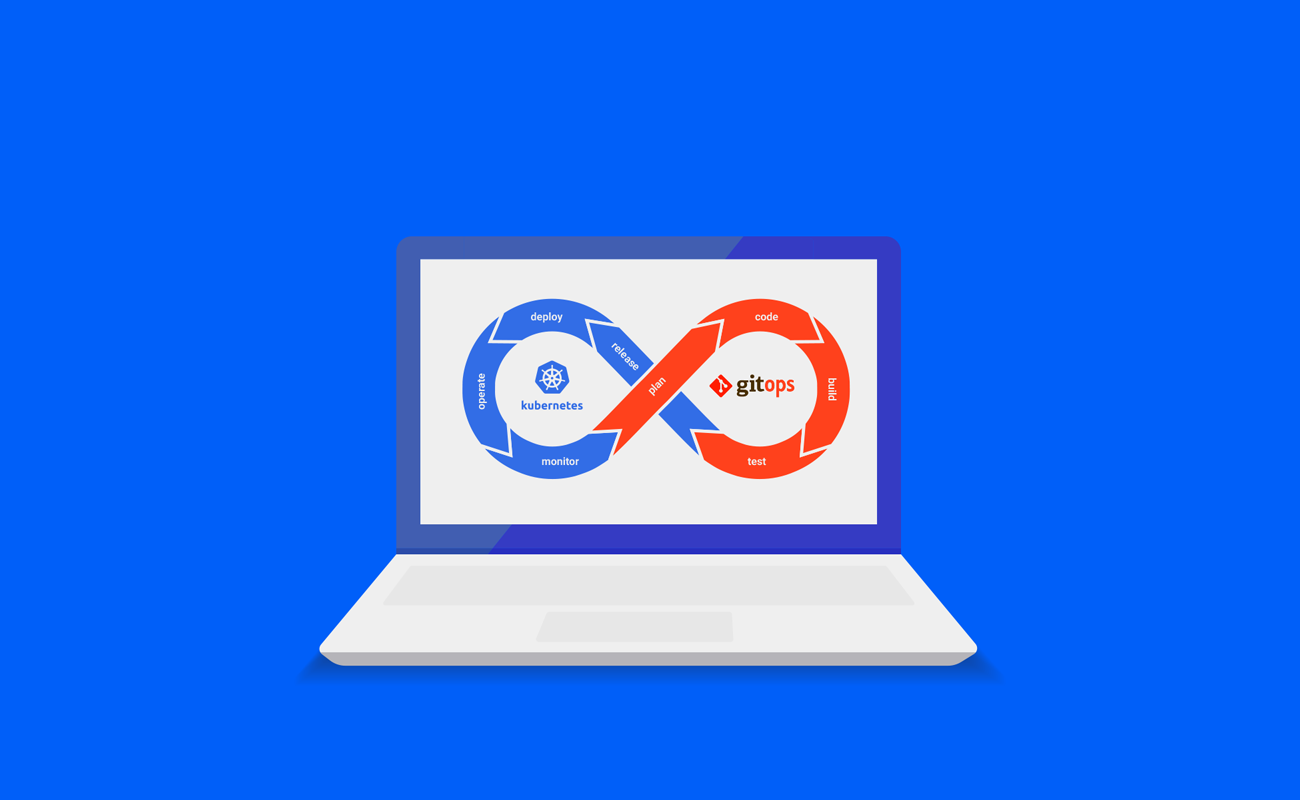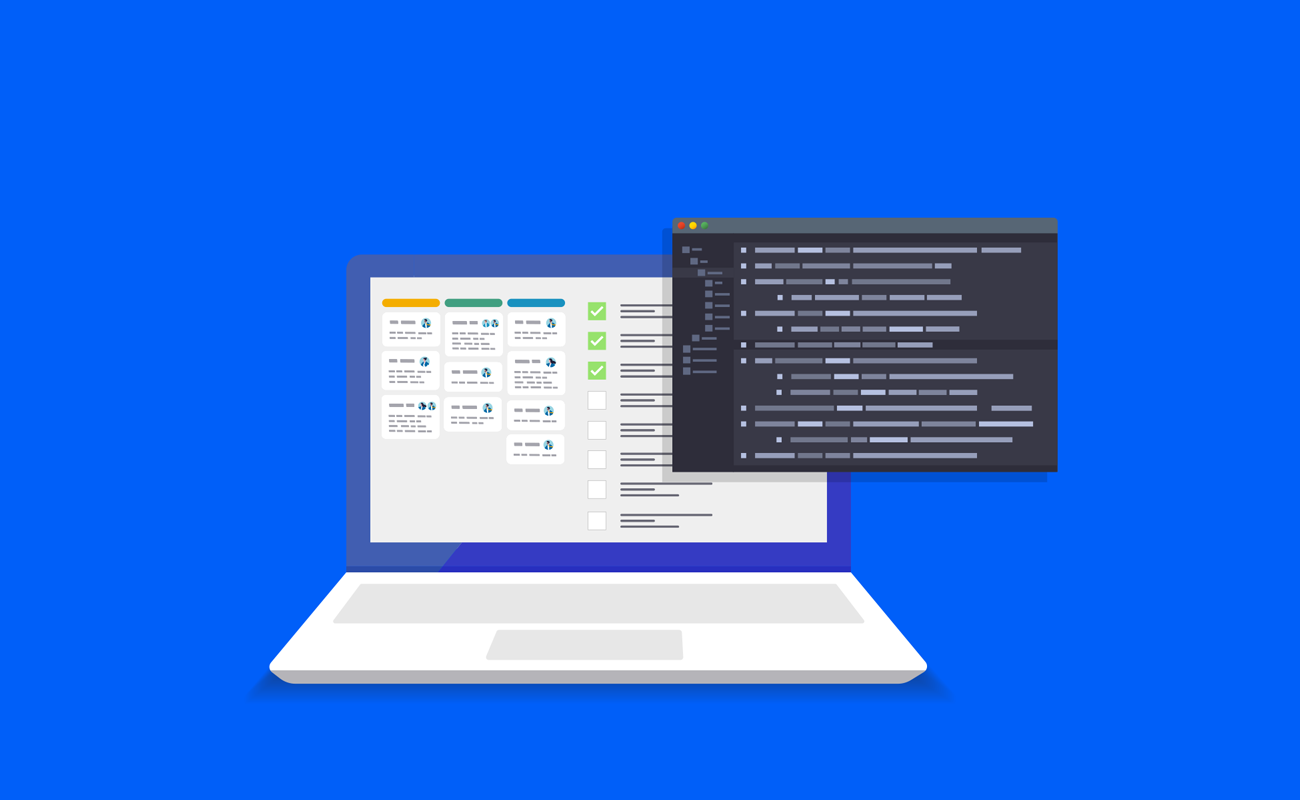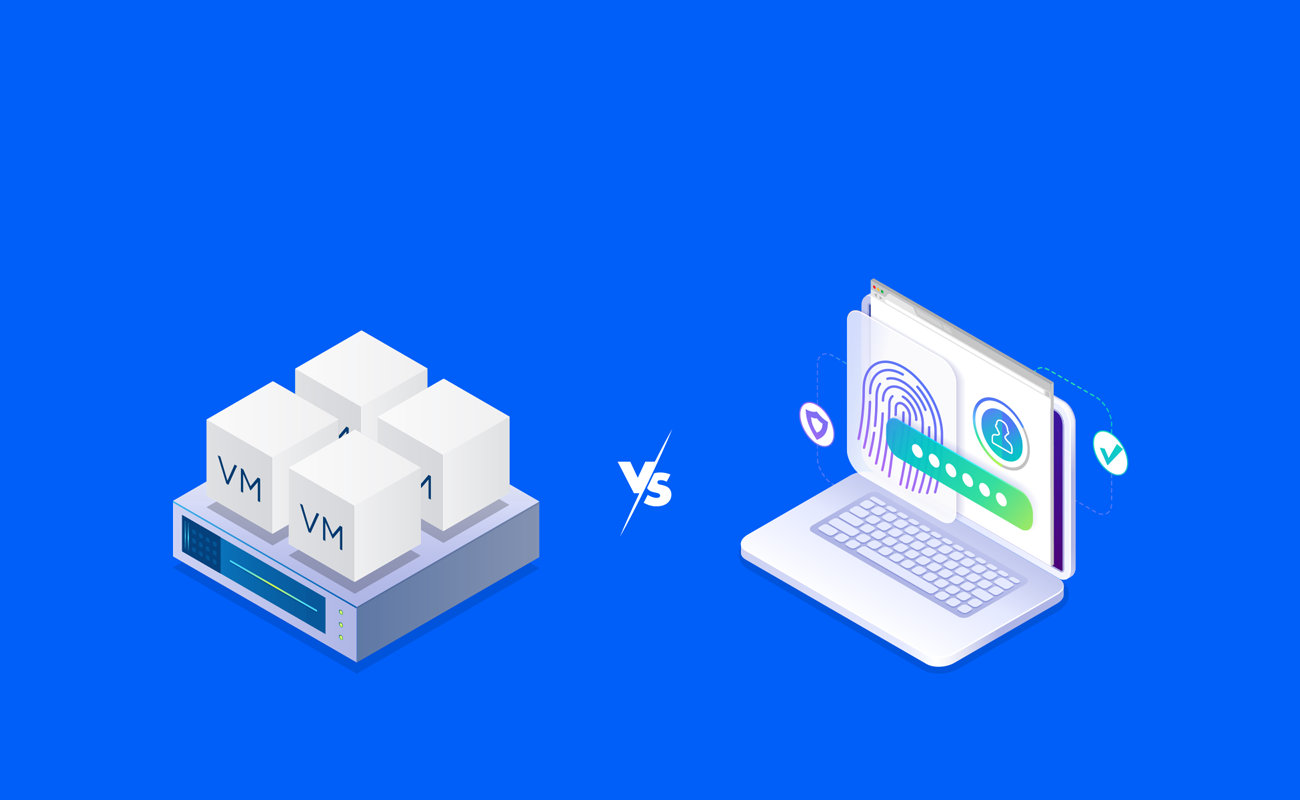
Virtual machines vs. antidetect browsers
APRIL 28, 2023
Virtual machines and antidetect browsers are two tools for online anonymity and privacy. They both have unique advantages and limitations, and choosing a suitable solution depends on your needs. In this article, we'll take a closer look at them and make a comparison to help you decide.
Understanding virtual machines
A virtual machine (VM) is a secure and isolated software environment that simulates a computer within a computer. It enables one to create a virtualized server, which works independently with its own operating system (OS) and applications.
The benefits of using VMs include enhanced security, the ability to run multiple OSs on the same device, and easy backup and restoration. They can also help you test software and run incompatible programs, making them ideal for developers and IT professionals. However, there are some limitations to using VMs, such as high resource usage and compatibility issues.
Understanding antidetect browsers
Antidetect browsers are designed to help protect against online tracking, reduce the risk of fraud and prevent account suspensions. Below are some benefits of using antidetect solutions for marketers and online businesses.
Online anonymity: Protect your online identity by hiding your IP address, device details and other personal information from websites and online services.
Fraud prevention: Prevent fraudulent activities such as account takeovers, fake account creation and other types of online fraud.
Account security: Reduce the risk of account suspensions and bans on online platforms due to suspicious activities or policy violations.
Competitive advantage: Protect your business from competitor spying and prevent them from accessing your valuable data.
Improved conversion rates: Provide a secure and private online environment that instills trust in your customers.
Virtual machines vs. antidetect browsers
The choice between VMs and antidetect browsers depends on your needs.
A VM is the preferred choice if you need a secure environment to run multiple operating systems or test applications, making it an ideal solution for IT professionals.
If your goal is to browse the web anonymously, avoid getting banned, or access blocked content, an antidetect browser is the way to go.
RDP vs. VNC vs. antidetect browsers
RDP, VNC, and antidetect solutions are all tools that allow you to access another computer or browse the web anonymously remotely. However, they differ in their specific features and use cases.
RDP
RDP (Remote Desktop Protocol) is a proprietary protocol developed by Microsoft that allows you to connect to a remote computer and control it as if you were sitting in front of it. RDP transmits screen updates and user input between the remote and client computers.
RDP benefits
Easy remote access: Connect to a remote computer from anywhere with an internet connection.
Full control: Control the remote computer as if sitting in front of it – this is a perfect solution for remote administration or support.
High performance: Easily use RDP for tasks that require a lot of processing power, such as video editing or gaming.
RDP limitations
Incompatibility: Since it is a proprietary protocol, it may be incompatible with non-Microsoft operating systems.
Vulnerability: RDP is vulnerable to security threats such as brute force attacks, which can compromise the security of your remote connection.
VNC
VNC (Virtual Network Computing) is an open-source remote desktop software that allows you to access and control another computer remotely. It works by transmitting screen updates and user input between the remote and client computers.
VNC benefits
Cross-platform compatibility: VNC is compatible with a wide range of operating systems, including Windows, macOS, Linux, and mobile platforms.
Open-source: VNC is freely available and can be modified by anyone.
High flexibility: VNC can be customized to meet specific needs and requirements.
VNC limitations
Speed: VNC can be slower than RDP due to its use of a network-intensive protocol.
Security: VNC does not provide built-in security features, so you need to take additional steps to secure your remote connection.
Below you’ll find a comparison of all the mentioned solutions.
RDP
Designed for accessing remote computers
Faster than VNC
Encrypted and secure
Compatible with Windows
Comes with Windows Pro/Enterprise
Limited features
The best use case is in business and IT environments
VNC
Designed for accessing remote computers
Supports more features than RDP
Compatible with multiple operating systems
Open-source and free
Slower than RDP
Less secure than RDP
The best use case is in IT environments and personal use
Antidetect solutions
Provide online anonymity and privacy
Compatible with multiple operating systems
Available for purchase or free with limited features
The best use case is for individuals seeking to scale their online business without getting banned
Cloud computing and virtual machines
Cloud computing has become increasingly popular in recent years, offering many benefits for businesses and individuals. One of the main advantages of cloud computing is that it allows you to run virtual computers in a remote data center, which reduces the need for physical servers and hardware.
Virtual machines use virtualization software to run on physical servers in remote data centers. This allows them to work in the cloud. Running multiple VMs on a single physical server reduces cost and complexity. This simplifies the management of physical servers.
Java virtual machines
Java Virtual Machine (JVM) is a software environment that runs Java code. It compiles Java code into bytecode, which can then be run on any device with a JVM installed. The JVM creates a virtual machine (VM) that emulates a computer within a computer, allowing Java code to run on any device without needing platform-specific code.
The right solution for your needs
VMs allow IT professionals to run multiple operating systems and applications in a secure environment effortlessly. RDP offers fast performance and top-notch security, while VNC boasts outstanding compatibility and flexibility.
On the other hand, antidetect browsers provide incredible advantages for online anonymity, privacy, and security. As such, Multilogin empowers individuals and businesses to navigate the web anonymously and evade account bans.
In the end, it's all about finding the perfect fit for your digital journey, and we hope that this article will help you make a well-informed decision.
